Mick Champayne | Your cloudy memories 15.05.2020
As we rely more and more on our digital devices to store and remember things for us, we are subtly shifting how human memory works. We all have memories we’d like to change, keep, or even, perhaps, edit, embellish, or erase, but in the future, could that be a reality?
Some people argue there is no such thing as a photographic memory. Scientifically maybe not, but I definitely think there’s something camera-like in my brain that assists me in creating my own personal mnemonics. Maybe it’s from all the years I’ve found myself as the de facto photographer, documenting everything in my life: family and friendships, travels and new experiences, the everyday—you name it, I've got a memory of it. The process has changed a lot over the years. I remember the excitement waiting for my disposable cameras to be developed, and keeping all of my pictures in a shoebox. Then one Christmas my mom gave me my first digital camera, and I could take (and delete!) as many pictures as I wanted, and keep them stored on a little memory card.
Eventually the internet happened, and my photography migrated online. First I started on Flickr, a photo-sharing platform where I learned more about technique and framing. Then I went to college, which meant a blur of party pictures on Facebook. Now I’m almost exclusively on Instagram, where I challenge myself to create fun and engaging stories with my photos.
Pics or it didn’t happen
Ultimately, for me and a lot of people, pictures serve as a form of “external memory storage.” One study found that 44 percent of Americans surveyed reported that their smartphone “serves as their memory,” and nearly half of young people who responded said that losing the data stored on their phones and similar devices would “fill them with sadness, since there are memories…that they would never get back.”
It’s not much of a leap to see our relationship with photography is closely linked to the rise of the smartphone and social media, making us a much more visual culture. In 2020, over 1.4 trillion photos will be taken, and thus most likely shared. A phenomenon called cognitive offloading—the idea that we’re literally outsourcing our mental capabilities to computers—means there’s a serious emotional investment and opportunity in digital storage. Worldwide spending on data storage is expected to exceed $78 billion by 2021 for services like Apple’s iCloud, Dropbox, and Google Drive.
By now we’ve all been on the internet long enough that our “memories” are getting served back up to us daily. Social platforms like Facebook, Instagram and Timehop send us down into rabbit holes of old statuses, old photos, and old friends.
Pictures have paradoxically become both ephemeral and permanent. It’s so easy now to snap a photo and upload it, and features like Instagram Stories that have been designed to be fleeting are technically preserved indefinitely in Facebook’s cloud. And by now we’ve all been on the internet long enough that our “memories” are getting served back up to us daily. Social platforms like Facebook, Instagram and Timehop send us down into rabbit holes of old statuses, old photos, and old friends. New product services like Google Assistant have taken up the task of storing, analyzing, categorizing, and now contextualizing our memories, allowing people to associate particular facts and stories—in an effort to keep us from forgetting.
Although all of these products and services indulge us in our human penchant for nostalgia, some memories are not always things we want to revisit. Features like Facebook’s Memories use algorithms to determine whether a given memory might actually be a bummer, like a deceased relative, a bad breakup, or something along those lines, giving users controls to adjust what content they want to see. But what if we could actually rewrite our memories?
Memory already exists. Do you want to replace it?
We all have memories we’d like to change, keep, or even, perhaps, edit, embellish, or erase. Two recent research studies raise this provocative prospect.
First, neuroscientists at the University of California Berkeley are building a device to decode the brain’s ‘language’ and learn to replicate it—a breakthrough which could give us god-like control over our thoughts, memories, senses, and feelings. But before you start picturing a Total Recall reality, most of the research is to be used to simulate sensations that might have been lost as the result of a trauma, like controlling neuroprosthetic limbs.
The other study focuses on more of an Eternal Sunshine of the Spotless Mind future. Steve Ramirez, an assistant professor at Boston University, has successfully erased specific memories from mouse brains, reactivated lost memories, and implanted false ones. He also is developing ways of tuning memories up or down—enhancing the recollection of positive experiences or quieting negative ones. For now, the research is geared towards treating people suffering from neurological disorders such as PTSD and Alzheimer’s.
Eternal backup
While we’re still a long way off from human-memory editing, that doesn’t mean we can rewrite history. In Amy Webb’s 2020 Tech Trends Report, she outlines the platforms and behaviors that we’ve created to preserve our memories will be the things that make it impossible to escape the past.
“After a decade of posting photos, videos and written messages on social media, it’s now clear that our recent histories will persist far into the future,” Webb writes in her report. “A centerpiece of the European Union’s landmark internet laws, the ‘right to be forgotten,’ emerged as a standard intended to force search engines to delete links to personal information if it wasn’t in the public interest. But in 2019, the European Court of Justice ruled in Google’s favor, making it much harder for people to request that negative, private or misleading information about them is removed from internet searches. A Google search team member put it more bluntly: ‘We’re not a truth engine.’”
In either case, when it comes to manipulating memory—either personal or our collective one—the bigger picture is perhaps the value of our memories. If our actions, our personalities, our very notions of self are based on the experiences we have had and on the memories we have collected, then to delete them would be similar to losing our phones—would we lose ourselves?
see also
- Mick Champayne | Life After Privacy

Trends
Mick Champayne | Life After Privacy
- Chris Duffey | AI Enhanced Creativity: Tomorrow’s Creativity is Here Today
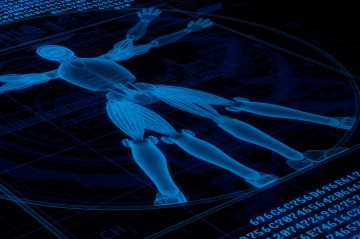
Opinions
Chris Duffey | AI Enhanced Creativity: Tomorrow’s Creativity is Here Today
- Creativity Without Limits. Another Series of Papaya Young Directors Stories Podcasts is Underway
 Papaya Young Directors
Papaya Young DirectorsNews
Creativity Without Limits. Another Series of Papaya Young Directors Stories Podcasts is Underway
- Are These Figures Actually Jumping? Optical Illusion Shared by Japanese Twitter User Turns Viral Sensation
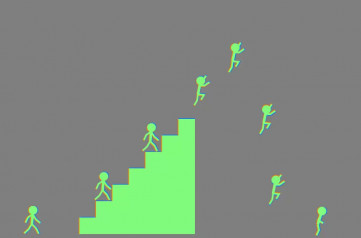
News
Are These Figures Actually Jumping? Optical Illusion Shared by Japanese Twitter User Turns Viral Sensation
discover playlists
-
Papaya Young Directors 5 Autorytety
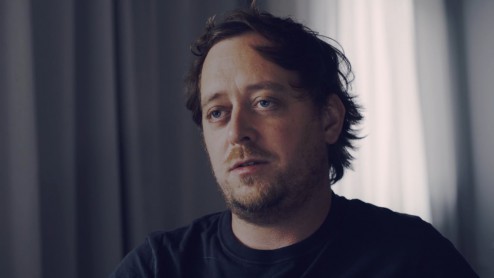 12
12Papaya Young Directors 5 Autorytety
-
Papaya Young Directors 6 #pydmastertalks
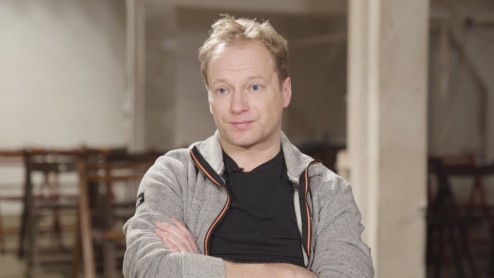 16
16Papaya Young Directors 6 #pydmastertalks
-
Walker Dialogues and Film Retrospectives: The First Thirty Years
 12
12Walker Dialogues and Film Retrospectives: The First Thirty Years
-
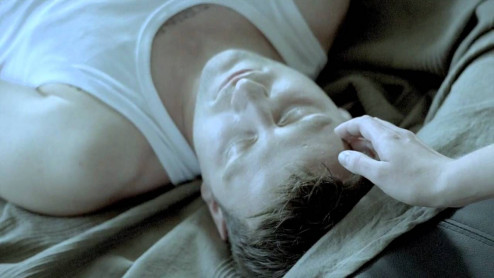 05
05
